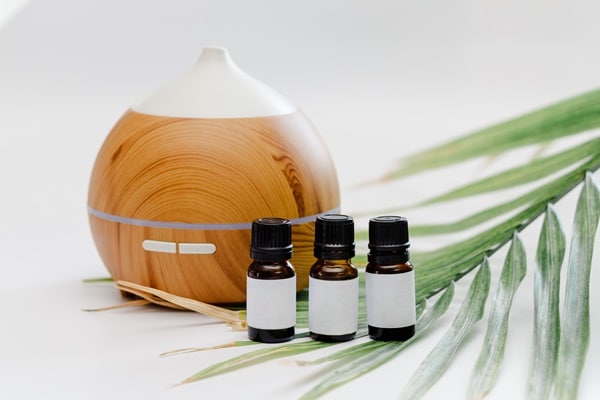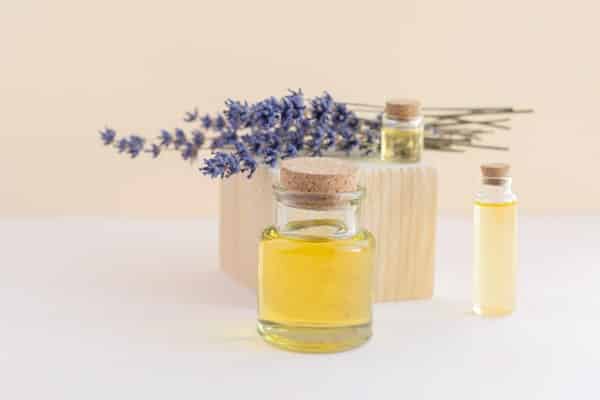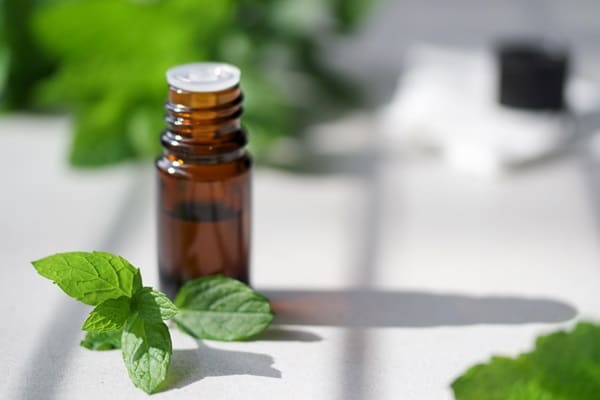In the realm of natural health and wellness, essential oils have emerged as a cornerstone, offering a plethora of benefits derived from the very essence of plants. These potent extracts, revered for centuries across various cultures, are not just about pleasant aromas; they embody the healing and therapeutic properties of nature. This exploration into the health benefits of essential oils will shed light on how these natural wonders can contribute to overall well-being, addressing everything from stress and sleep to pain and skin health. Discover the transformative power of essential oils and how they can be integrated into daily life for enhanced health and wellness.
Contents
The Basics Of Essential Oils

Essential oils are more than just pleasant scents; they are highly concentrated plant extracts obtained through distillation or mechanical methods, like cold pressing. Once the aromatic chemicals have been extracted, they are combined with a carrier oil to create a product ready for use. The essence of the plant is captured, embodying its scent and flavor. These oils are not only used for their aromatic qualities but also for their therapeutic properties.
The methods of using essential oils are as varied as the oils themselves. Diffusion into the air is a popular method, allowing the aroma to permeate the space, while topical application involves diluting the oil with a carrier oil and applying it to the skin. Some people also use essential oils in baths or as part of aromatherapy massage, taking advantage of their ability to be absorbed through the skin or inhaled. Each method offers a unique way to experience the benefits of these potent extracts.
Stress Reduction And Relaxation

Essential oils like lavender and chamomile are renowned for their calming effects, making them ideal for stress reduction and relaxation. The compounds in these oils interact with the brain and the nervous system, promoting a sense of calm. Inhaling these scents can trigger a relaxation response in the brain, which helps alleviate stress. Studies have shown that using these oils can significantly lower stress and anxiety levels, making them a valuable tool in managing daily stressors.
Incorporating these oils into daily routines can be simple yet effective. Adding a few drops of lavender or chamomile oil to a diffuser before bedtime can create a tranquil environment conducive to relaxation. Alternatively, applying diluted oil to pulse points or using it in a warm bath can also help soothe the mind and body. The key is consistent and mindful use, allowing the natural properties of the oils to work their magic in reducing stress and enhancing relaxation.
Improving Sleep Quality

Lavender and bergamot oils are particularly effective in enhancing sleep quality. Their soothing properties help calm the mind and prepare the body for rest. Research indicates that these essential oils can improve sleep patterns, with lavender oil showing a notable ability to increase deep sleep phases. The calming effect of these oils on the nervous system plays a significant role in promoting restful sleep.
To harness these benefits, incorporating essential oils into a bedtime routine can be highly beneficial. Adding a few drops of lavender or bergamot oil to a diffuser in the bedroom can create a calming atmosphere. Alternatively, applying the oil topically after diluting it with a carrier oil, particularly on areas like the feet, neck, and wrists, can aid in relaxation. Consistent use of these oils can lead to improved sleep quality over time.
Pain And Inflammation Relief

Essential oils such as eucalyptus and ginger are known for their anti-inflammatory and pain-relieving properties. These oils contain compounds that can reduce inflammation and provide relief from various types of pain, including muscle soreness and arthritis pain. Studies have shown that applying these oils topically can significantly reduce pain levels, making them a natural alternative to traditional pain relief methods.
When using essential oils for pain relief, it’s important to dilute them with a carrier oil to prevent skin irritation. Massaging the diluted oil into the affected area can help reduce inflammation and alleviate pain. For chronic conditions like arthritis, regular application can lead to long-term benefits. As with any natural remedy, it’s crucial to use these oils safely and consult with a healthcare professional if you have any concerns.
Boosting Immune System

Essential oils like tea tree and oregano are celebrated for their immune-boosting properties. These oils contain compounds that have been shown to support the body’s natural defense mechanisms against pathogens. Tea tree oil, for instance, is known for its antibacterial and antiviral properties, making it a popular choice for enhancing immune health. Similarly, oregano oil is recognized for its antimicrobial and antiviral qualities, which can be beneficial in warding off infections.
Incorporating these immune-boosting oils into daily life can be both easy and effective. Diffusing tea tree or oregano oil in the home can help purify the air and create an environment less conducive to the spread of germs. For personal use, adding a few drops of these oils to a carrier oil and applying them to the soles of the feet or the back of the neck can be an effective way to harness their benefits. It’s important to remember, however, that essential oils are potent and should be used with care, always diluted, and never ingested without professional guidance.
Enhancing Skin Health

The benefits of essential oils for skin health are diverse, ranging from treating acne to reducing signs of aging. Tea tree oil, for example, is renowned for its ability to combat acne due to its antibacterial properties. On the other hand, oils like rosehip are lauded for their anti-aging benefits, rich in vitamins and antioxidants that promote skin regeneration and elasticity. These natural remedies offer a gentler alternative to harsh chemical treatments, nurturing the skin while addressing various concerns.
To integrate essential oils into a skincare routine, it’s crucial to understand each oil’s properties and how they interact with different skin types. For acne-prone skin, diluting tea tree oil with a carrier oil and applying it to blemishes can be effective. For aging skin, mixing a few drops of rosehip oil with a daily moisturizer can help enhance its rejuvenating effects. It’s essential to conduct a patch test before widespread use and to consult with a dermatologist if you have sensitive or problematic skin.
Respiratory Health Benefits

Essential oils like peppermint and eucalyptus are highly beneficial for respiratory health. These oils are known for their decongestant properties, helping to clear nasal passages and ease breathing. Eucalyptus oil, in particular, contains compounds that are effective in reducing inflammation in the respiratory tract, making it a popular choice for those suffering from colds or sinus issues. Peppermint oil, with its high menthol content, is also excellent for relieving congestion and soothing irritated airways.
Using these oils to aid respiratory health can be done in several ways. Inhaling the steam with a few drops of eucalyptus or peppermint oil added to hot water can provide immediate relief for congested sinuses. Alternatively, using these oils in a diffuser can help maintain clear airways throughout the night, promoting better sleep. It’s important to use these oils in moderation and to ensure that they are properly diluted to avoid irritation, especially for those with sensitive respiratory systems.
Mental Clarity And Focus

Essential oils such as peppermint and rosemary are known for their ability to enhance cognitive functions. The invigorating scent of peppermint oil is often used to boost alertness and concentration, while rosemary oil has been associated with improved memory and mental clarity. These oils stimulate the brain and can help increase focus, making them useful tools for studying or working on demanding tasks.
To leverage the cognitive benefits of these oils, incorporating them into a daily routine can be highly effective. Diffusing peppermint or rosemary oil in a workspace can create an environment conducive to focus and productivity. Alternatively, applying a diluted mixture of these oils to the temples or wrists can provide a quick and portable way to harness their benefits. As with all essential oils, it’s important to use them responsibly, ensuring they are properly diluted and not used excessively, as overuse can lead to desensitization or adverse reactions.
Embrace The Essence Of Well-Being
In conclusion, the diverse health benefits of essential oils, from stress relief and improved sleep to enhanced immune function and skin health, highlight their significant role in natural wellness. These potent plant extracts offer a holistic approach to health, addressing both physical and mental well-being. As you explore the world of essential oils, remember to prioritize quality and safety. Embrace these natural gifts and integrate them into your daily routine, unlocking a more balanced and healthful life.


